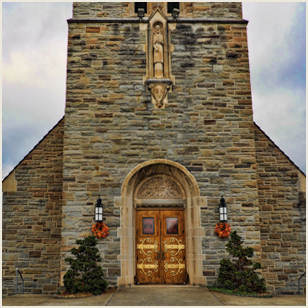Augustine (354-430), Page: Quotes, Quote Author, Quote Topic, Spiritual (life)
The more fervent the desire, the more worthy will be its fruit. When the Apostle tells us: Pray without ceasing, he means this: Desire unceasingly that life of happiness which is nothing if not eternal, and ask it of him who alone is able to give it.
–Saint Augustine (354-430)
Page: Quotes, Quote Topic, Spiritual (life)
Upright of heart is he whose thought does not turn away either to excess or to lack, but is directed only to the mean of virtue.
–Saint Basil the Great (329-379)
Augustine (354-430), Page: Quotes, Quote Author, Quote Topic, Spiritual (life)
Take care of your body as if you were going to live forever; and take care of your soul as if you were going to die tomorrow.
–Saint Augustine (354-430)
Augustine (354-430), Page: Quotes, Quote Author, Quote Topic, Spiritual (life)
Our Lord’s words teach us that though we labor among the many distractions of this world, we should have but one goal. For we are but travelers on a journey without as yet a fixed abode; we are on our way, not yet in our native land; we are in a state of longing, not yet of enjoyment. But let us continue on our way, and continue without sloth or respite, so that we may ultimately arrive at our destination.
–Saint Augustine (354-430)
Page: Quotes, Quote Topic, Repentance, Spiritual (life)
A young monk said to Abba Sisoes: “Abba, what should I do? I fell.” The elder answered: “Get up!” The monk said: “I got up and I fell again!” The elder replied: “Get up again!” But the young monk asked: “For how long should I get up when I fall?” “Until your death,” answered Abba Sisoes. “For a man heads to his judgment either fallen or getting back up again.”
–Saint Sisoes (d. 429)
Contemplation, Page: Quotes, Quote Topic, Spiritual (life)
For this reason let all our actual contemplation, life and activity take place in him alone, about him, for him and towards him who is able and capable to produce with a single nod of his will things infinitely more perfect than any that exist now.
–Saint Albert the Great (c. 1206-1280)

